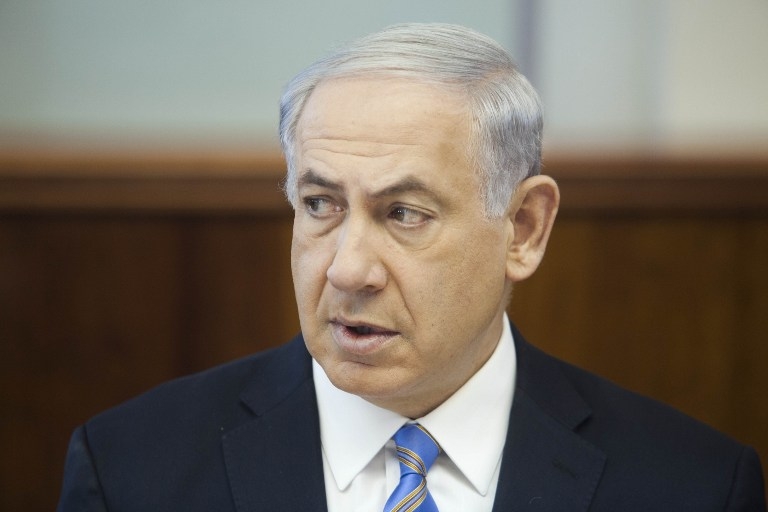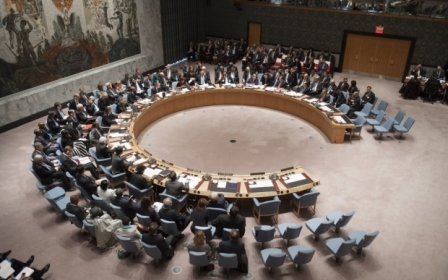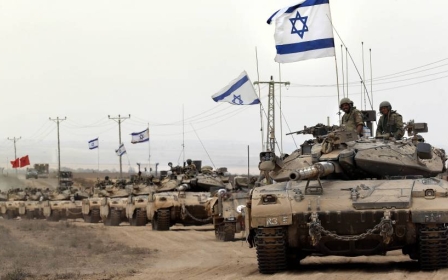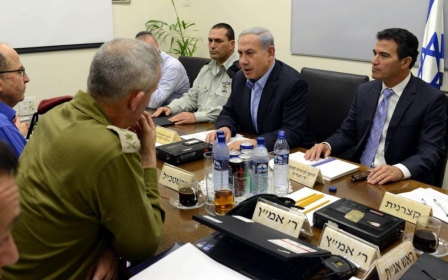Netanyau's fight for re-election

Many things can be said about Hezbollah’s attack Wednesday on Israeli army vehicles near the border with Lebanon. But it is not as if the attack came as a surprise. Ever since the air strike in Syria 10 days ago (which the whole world, including UN peacekeeping forces in the Golan Heights, attributed to Israel) an attack that killed high-level Hezbollah officials and an Iranian general, it was evident that Hezbollah would retaliate. That retaliation came today.
The scale of the attack this morning seemed measured. Hezbollah is believed to have hundreds of thousands of missiles and rockets, capable of hitting almost any target in Israel with high precision. But it chose a more conservative mode of action: firing five anti-tank rockets at an Israeli army convoy traveling along the border with Lebanon near the village of Ghajar, part of the Syrian Golan Heights, occupied in 1967. Two soldiers were killed and seven were wounded.
Israel's response to this morning’s attack was also relatively restrained. A few dozen rounds of artillery were fired at areas in Lebanon near the border, killing a Spanish soldier from the United Nations Interim Force in Lebanon (UNIFIL). But this was in no way comparable to the extensive airstrikes which followed a Hezbollah ambush on an Israeli patrol in August 2006, leading to an all-out war. A similar attack from Hamas in Gaza would have been answered much more severely.
In an early reaction to the events in the north, Prime Minister Benyamin Netanyahu threatened that "those behind the attack will pay the full price". But it seems that from Israel's point of view, the Ghajar incident is over. It is as if each side played according to the rules. Israel targeted Hezbollah officials in Syria, Hezbollah targeted Israeli soldiers in the occupied Golan Heights, a "legitimate" target according to international law. If we were talking about football, the result would be a draw.
This somehow stoic attitude towards the killing of two of its soldiers tells us clearly that Israel does not want further escalation with Hezbollah right now. The question to be asked is why Israel started this round of conflict in the first place.
The Israeli army takes pride in the fact that since the end of the war with Hezbollah in 2006, the Lebanese border has been calm. The calm along the border with Syria in the occupied Golan Heights has been almost uninterrupted since the 1973 war. Why then, attack a convoy with Hezbollah officials traveling on Syrian territory, very close to the ceasefire line in the Golan?
The unofficial version (Israel did not claim responsibility for the attack) is that Hezbollah was planning, with Iranian support and Syrian consent, to open a new front on the Israeli border with Syria. Jihad Mughniyeh, the 23-year-old son of Imad Mughniyeh, the legendary Hezbollah military leader killed in Damascus in 2008, probably by Mossad agents, was supposedly the commander of this new front. The attack on his convoy, together with a general from the Iranian Revolutionary Guards, was necessary in order to prevent this imminent threat on Israel.
Without having the full intelligence information, it is difficult to tell how much truth lies in these claims. But it is almost impossible not to ask whether the decision to attack at this specific time, two months before Election Day, was more a political decision than a military one.
In short, some might conclude that Netanyahu ordered this attack in order to divert the electoral debate from the uncomfortable social and economic issues to defence issues. This way, he can portray himself as intransigent towards "Islamic terrorism", contrary to the allegedly "soft" stand taken by Yitzhak Hertzog and Tzipi Livni from the centre-left "Zionst camp", now leading in opinion polls.
Such allegations are usually met with flat denial in Israel. But this time was different. Yoav Galant, ex-commander of the Southern Front during operation Cast Lead and Pillar of Defence, gave an unorthodox version of events in an interview with Israel's Channel 2. Answering a question about possible political considerations behind the attack on Mughniyeh, Galant admitted that "out of previous events you can tell that sometimes there is timing not unconnected to election issues".
Galant referred mainly to the targeted killing of Hamas leader, Ahmed Ja'abari in November 2012, a move which led to Operation Pillar of Defence, right before the previous elections in Israel. It was possible to kill him on previous occasions, revealed Galant, but strangely enough the attack was approved only before the election. The insinuation was clear: the approval for Mughniyeh's killing was closely connected to the upcoming elections.
Galant's unusual frankness probably had something to do with the fact that he himself is part of a list headed by Moshe Cahlon, a former Likud minister now running against Likud. Galant even had to retract his words later, but their effect remained. Many in Israel, not only among Netanyahu's opponents, suspect that politics influenced the decision to (re)open the conflict with Hezbollah and even Iran.
The common wisdom in Israel is that military tension tends to help the right-wing against the left. The Labour party, and even the more leftist Meretz, find it hard to criticize the government in these circumstances and ally themselves with the army. In times of fear and uncertainty, it is easier for the public to find refuge in right-wing parties like Likud or Jewish Home.
But this is not necessarily true. In 1992, Labour won after a series of stabbings by Palestinians in Israeli cities reinforced its candidate Yitzhak Rabin, who claimed that Israel should put a border between itself and the Palestinians. Even Ja'abari's killing did not yield the hoped for results. Natanyahu did win the election held three months later, but with a smaller margin than he had in polls before Operation Pillar of Defence began.
Whatever its political motivations might be, it is far from certain that the current escalation with Hezbollah will help Netanyahu. The war with Hezbollah in 2006 left a trauma in Israel's collective memory, when its northern cities were almost totally in fear of missile attacks from Lebanon. Operation Defensive Edge, less than six months away, was maybe less traumatic, but still left its marks.
As many Israelis are not convinced that the current round of violence with Hezbollah was truly necessary, they may prefer in ballots the less adventurous Hertzog. This may explain why despite his gung-ho rhetoric, Netanyahu decided not to widen Israeli operations in Lebanon.
But it may be too late. Pushed by internal right-wing opposition from the likes of Foreign Minister, Avigdor Lieberman, Netanyahu might still decide to "teach Hezbollah a lesson". Hezbollah, out of its own internal calculations, may think that this is the right time to challenge Israel with further attacks, building on its success near Ghajar.
Netanyahu did not want really to go to war with Hamas this summer, but his "limited" operation in Gaza lasted more than fifty days and paralysed Israel. When compared to a possible war with Hezbollah, the conflict with Hamas may seem like child’s play.
- Meron Rapoport is an Israeli journalist and writer, winner of the Napoli International Prize for Journalism for a inquiry about the stealing of olive trees from their Palestinian owners. He is ex-head of the News Department in Haaertz, and now an independent journalist.
The views expressed in this article belong to the author and do not necessarily reflect the editorial policy of Middle East Eye.
Photo: Israeli Prime Minister Benjamin Netanyahu (AA)
New MEE newsletter: Jerusalem Dispatch
Sign up to get the latest insights and analysis on Israel-Palestine, alongside Turkey Unpacked and other MEE newsletters
Middle East Eye delivers independent and unrivalled coverage and analysis of the Middle East, North Africa and beyond. To learn more about republishing this content and the associated fees, please fill out this form. More about MEE can be found here.





